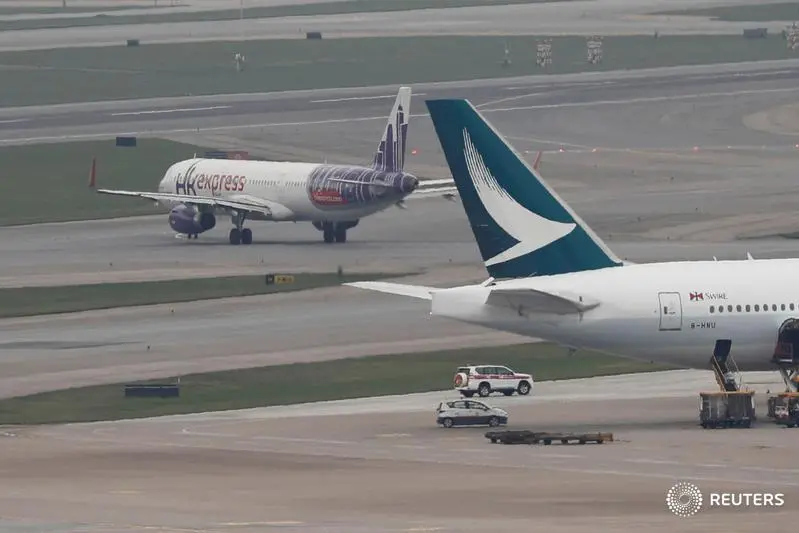PHOTO
HONG KONG - Beijing officials have crowded the cockpit at Cathay Pacific Airways. Hong Kong's unofficial flag carrier is allowing China to vet staff flying to and over the mainland, as anti-government protests heat up at home. "Overly radical" employees will be kept away altogether. The airline and its parent company, Swire Pacific, are especially vulnerable to such interference.
Cathay is a local institution, which has expanded its influence over the decades along with the city. The $5 billion company has some 27,000 staff, many of them based in Hong Kong. That makes its concessions all the more painful.
At Cathay’s earnings briefing last week, when pressed about employees joining the mass protests against an extradition bill, Chairman John Slosar said the airline would not intervene. The sentiment didn’t last, though. Chief Executive Rupert Hogg told employees over the weekend that the company would yield to Beijing's civil aviation authority, including by submitting crew lists for flights to and over China. It has already suspended a pilot who was arrested and charged with rioting, and sacked two ground staff over the leaked travel schedule of a Hong Kong police football team.
There are few palatable options for Hogg, who is already dealing with cargo yields battered by a trade war and a turnaround plan that leans heavily on revenue growth. Cathay has no domestic market and can ill-afford the loss of mainland passengers. State carrier Air China is its second-largest shareholder, behind Swire, the bottling-to-property conglomerate.
All the same, Cathay’s ceding provides an unwelcome reminder to investors of just how tight Beijing's grip is. The shares tumbled more than 4% on Monday. For Hong Kong businesses, the cost of the protest may go well beyond any immediate loss of sales.
The travel industry has bounced back from declines in inbound bookings, as Cathay says it has seen. Beijing's interference in the running of the business, including who gets into the mainland based on opaque criteria, is far more worrisome. Other companies, such as banking behemoth HSBC HSBA.L , may soon find themselves equally caught between China and a hard place.
CONTEXT NEWS
- The Civil Aviation Administration of China told Cathay Pacific Airways on Aug. 9 that staff who supported anti-government protests in Hong Kong would not be allowed on flights to mainland China or ones flying over Chinese airspace. Cathay CEO Rupert Hogg said on Aug. 10 that the airline would submit identification details of all crews flying to or over China for approval.
- Cathay also said on Aug. 10 that it had suspended a pilot arrested during demonstrations. The pilot was removed from duties on July 30 “in line with our standard process”.
- The company owns just over 18% of China’s flag carrier, Air China, which in turn holds a stake of just under 30% of Hong Kong-based Cathay, according to Cathay’s 2018 annual report.
- Cathay shares fell more than 4%, to HK$9.88 in morning trading on Aug. 12.
(Editing by Jeffrey Goldfarb and Sharon Lam) ((clara.ferreira-marques@thomsonreuters.com; Reuters Messaging: clara.ferreira-marques.thomsonreuters.com@reuters.net))





















